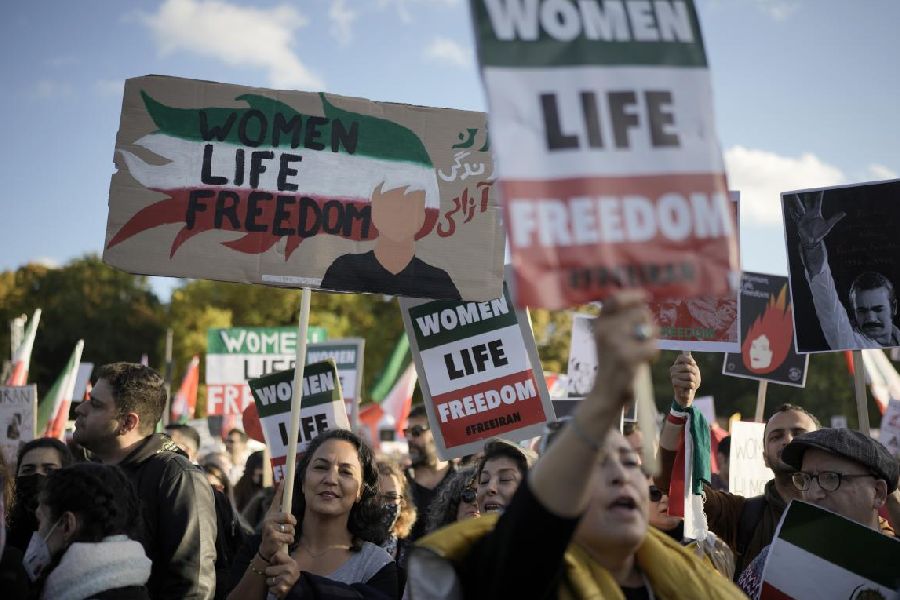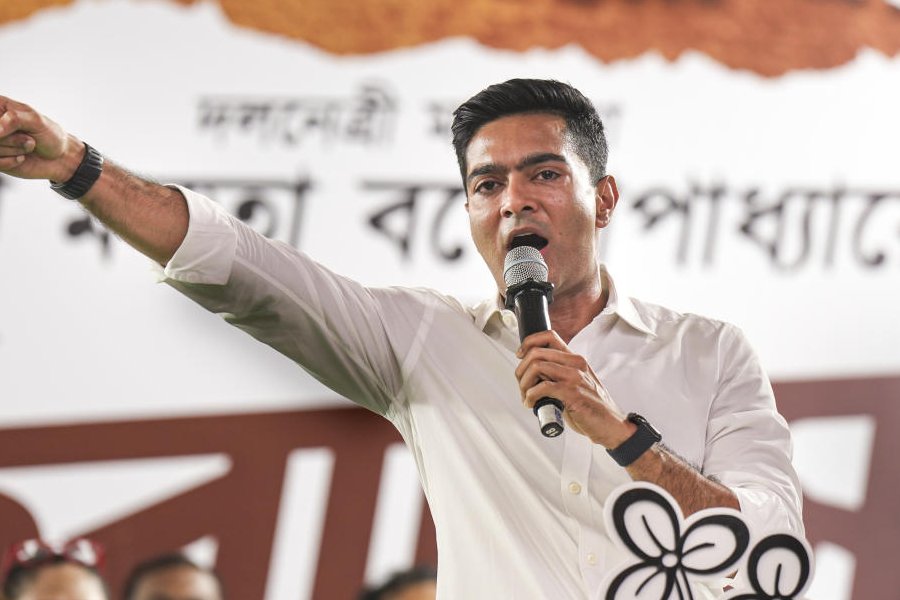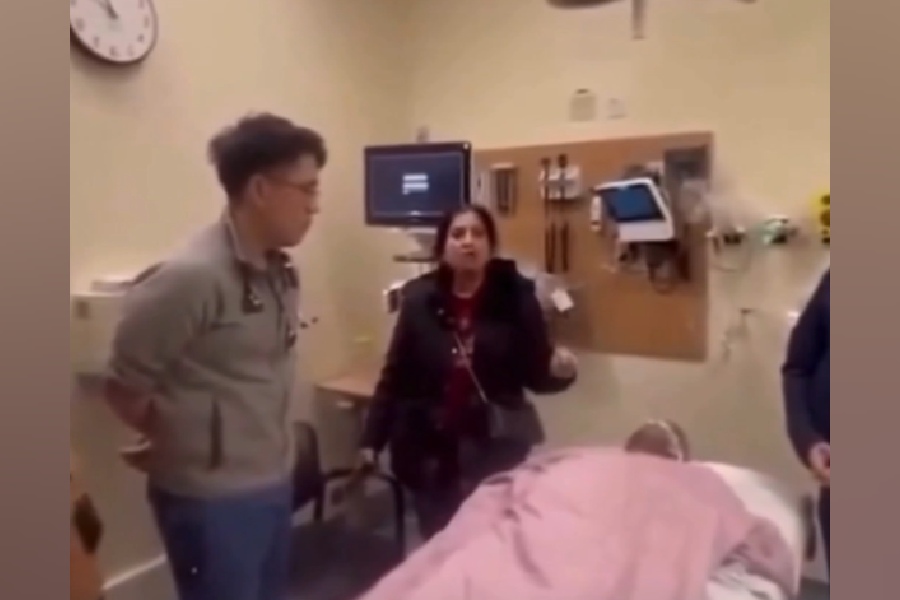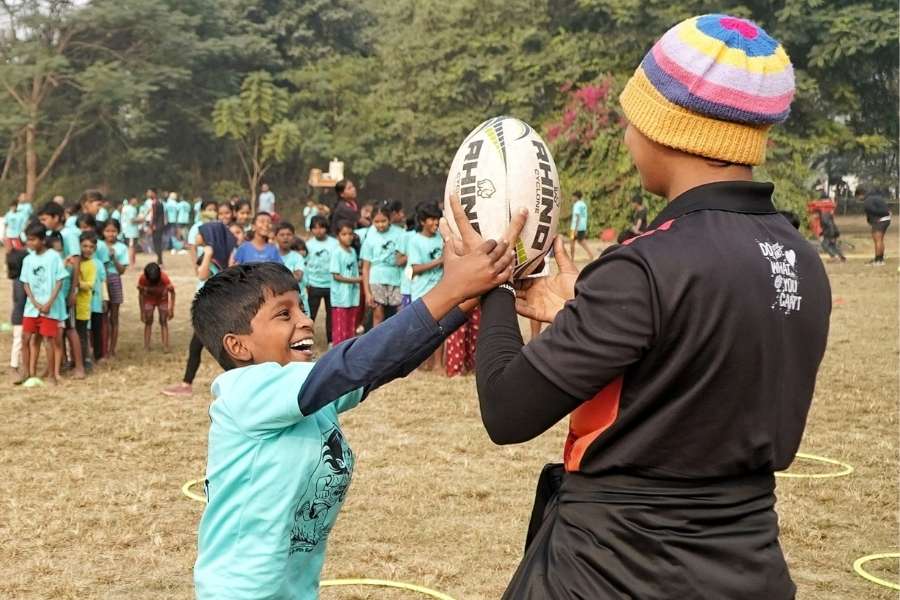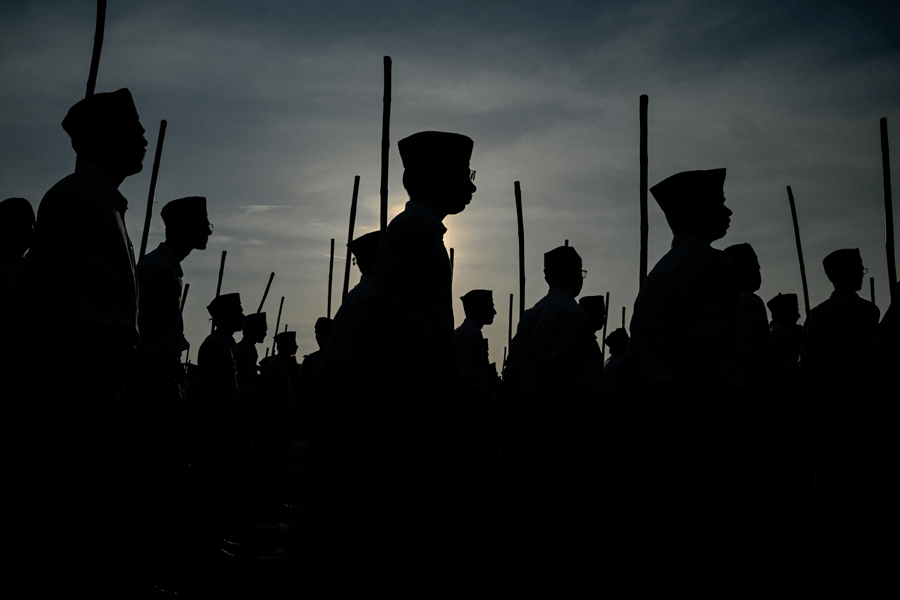Book: WOMAN! LIFE! FREEDOM! ECHOES OF A REVOLUTIONARY UPRISING IN IRAN
Author: Chowra Makaremi
Published by: Yoda
Price: Rs 599
On September 13, 2022, a 22-year-old Kurdish-Iranian woman, Jina Mahsa Amini, was arrested in the Iranian capital of Tehran (where she had come for a vacation with her family) by the morality police for wearing her veil “too loose” and taken to “a re-education centre”. Soon after, she was admitted to Kasra hospital with cerebral hemorrhage and went into coma. On September 16, she died in hospital. Her funeral was conducted in Saqqez, her hometown, the next day. By then, news of her, initially reported by the journalist, Niloofar Hamedi, for the newspaper, Shahrq, had spread like wildfire, bringing people, especially women, out on the streets, chanting “Jin Jiyan, Azadi”, catapulting her into a symbol of freedom.
These dates — and their incidents — mark the first few chapters of Chowra Makaremi’s book. Forty-two of the subsequent 44 chapters are also titled by dates of the calendar — from mid-September 2022 to mid-February 2023 — drawing out a long Iranian autumn and winter of revolution, sparked by Amini’s death, that was reminiscent of previous uprisings but had a unique character all of its own. As Makaremi inches forward in her narrative, she gives her readers a candid version of both. Her own family history (her mother and aunt were imprisoned and executed during Ayatollah Khomeini’s regime) and her training as an anthropologist (she is a tenured researcher on the subject at CNRS, Paris, where she had relocated as a child in the early 1980s to join her refugee father) provide her with an unusual dual perspective to write from.
Memory is an organising principle in this book that is part memoir, part historical narrative. It may be pertinent to mention here that Makaremi discovered and later translated her maternal grandfather’s memoir, Aziz’s Notebook: At the Heart of the Iranian Revolution (2011), decades after he wrote it at the height of State repression in Iran under Khomeini. It is a testimony to loss by a grieving father, trying to keep alive the memory of two beloved daughters against the deafening silence surrounding their deaths for the sake of his exiled grandchildren. Woman! Life! Freedom!, in a way, takes that narrative forward — of a continuing history of resistance to a theocratic State and its violent suppression, punctuated over four decades.
As the narrative moves back and forth between Iran’s present and its recent past, it is animated at crucial points by Makaremi’s family history, shared in bits and pieces, through association of thought. A telling instance occurs when she elaborates on the events of September 26, 2022 when rage against the current regime was building up in Iran, post Amini’s funeral. “The curtain of fear had been ripped open”, she writes. That very phrase rings a bell (‘curtain’ also means movie screen in Persian), taking her back to an amusement park in 1984 where she had watched Zorro while her grandfather waited to be taken to the detention camp where her mother, like thousands of others, had been kept and tortured. Her mother’s time at the notorious Adel-Abad prison in Shiraz is referred to, once again, while discussing the clemency by the Supreme Leader, Ali Khamenei, to 82,000 political prisoners and detainees that was announced on Iranian television on February 9, 2023.
It is important to note that the ‘Woman’ in the rallying slogan of 2022 was not just the adult female but also the incipient ones — schoolgirls who gave themselves over to the euphoria of the moment, removing their headscarves when expressly asked not to do so in assemblies, ripping out pictures of the Supreme Leader from history books. Here again, they were repeating what their forbears had done in 1979 or in the 2000s.
What was not a repeat in 2022 was the lack of fear to stand up against the injustices of a brutal regime. The fears that had hounded those who had lived through the horrors of Iran in the 1980s had been inherited by their children “but generation z”, Makaremi tells us, “abandoned the transmission chain. It took to the streets, middle fingers raised in the air.”
One only hopes that the fear would not return.

